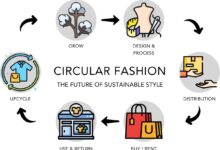Sustainable Fashion Certifications Explained: A Comprehensive Guide
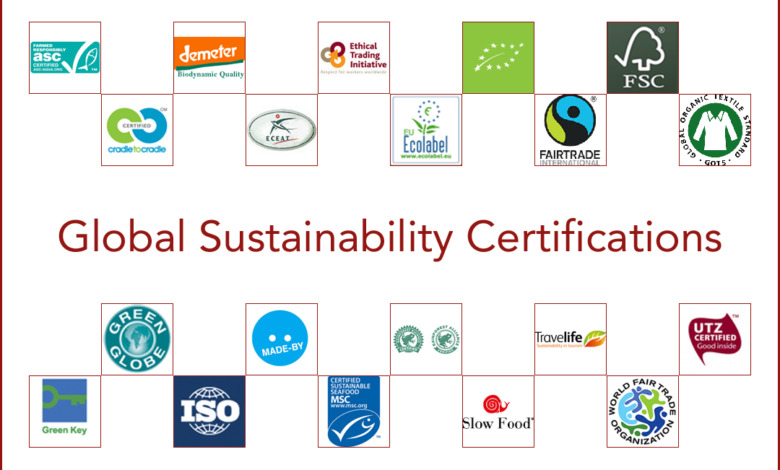
Discover the world of sustainable fashion certifications with Chokerclub. In this comprehensive guide, we unravel the importance and intricacies of sustainable fashion certifications, empowering you to make conscious choices. Sustainable fashion is a growing movement that focuses on ethical and eco-friendly practices, and certifications play a crucial role in ensuring transparency and accountability in the fashion industry. By understanding the criteria and standards behind these certifications, you can navigate the sustainable fashion landscape with confidence, aligning your values with the clothes you wear. Join us as we explore the realm of Sustainable Fashion Certifications Explained.
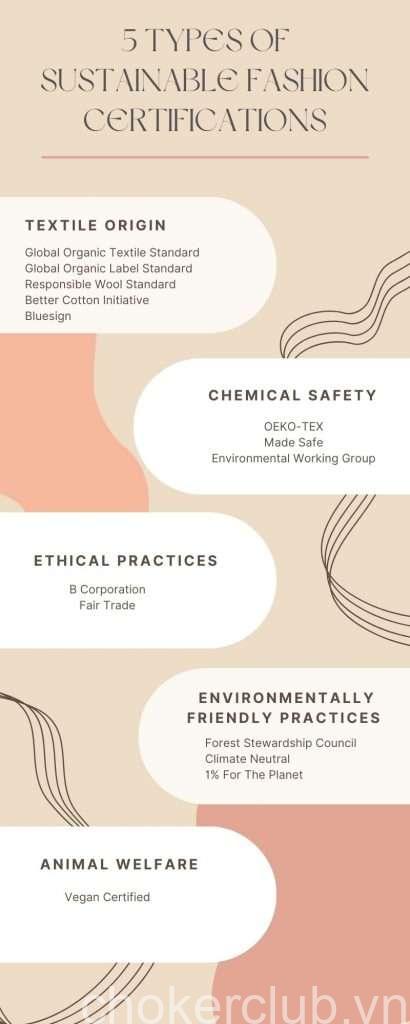
| Key Takeaways |
|---|
| Understand the importance of sustainable fashion and its positive impact on the environment and society. |
| Explore different sustainable fashion certifications, such as GOTS, Fair Trade, and B Corp, and their specific criteria. |
| Learn about the standards and requirements set by these certifications to ensure ethical and eco-friendly fashion practices. |
| Compare and contrast various sustainable fashion certifications to find the best fit for your values and preferences. |
| Discover how sustainable fashion goes beyond certification and embrace a holistic sustainable lifestyle. |
I. Sustainable Fashion Certifications Explained: What You Need to Know
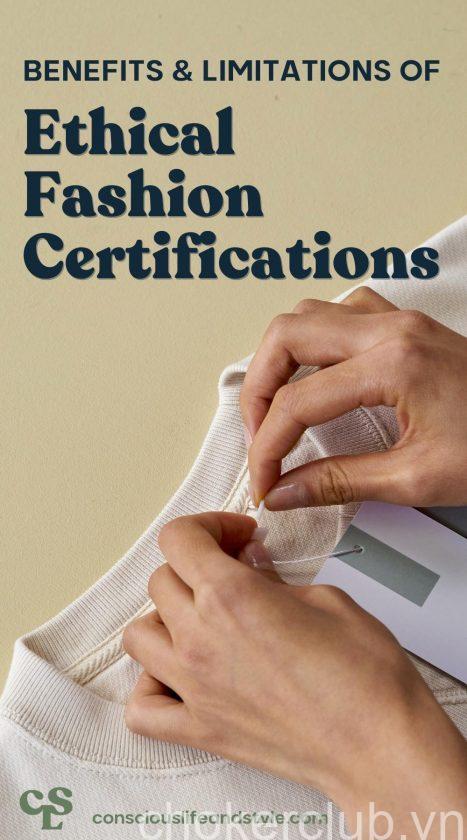
The Global Organic Textile Standard (GOTS) certification guarantees that a garment is produced using organic materials and follows strict environmental and social criteria throughout the entire supply chain. This certification ensures that the fabrics used are grown without harmful chemicals, promoting healthier ecosystems and reducing the environmental impact of fashion. In addition, GOTS-certified garments uphold fair trade principles, ensuring the well-being and rights of workers involved in the manufacturing process.
GOTS certification requires compliance with criteria such as the exclusion of toxic chemicals, water and energy usage limits, and adherence to social criteria, including fair wages and safe working conditions. By choosing GOTS-certified clothing, you can support both sustainability and social justice in the fashion industry.
II. Understanding the Importance of Sustainable Fashion
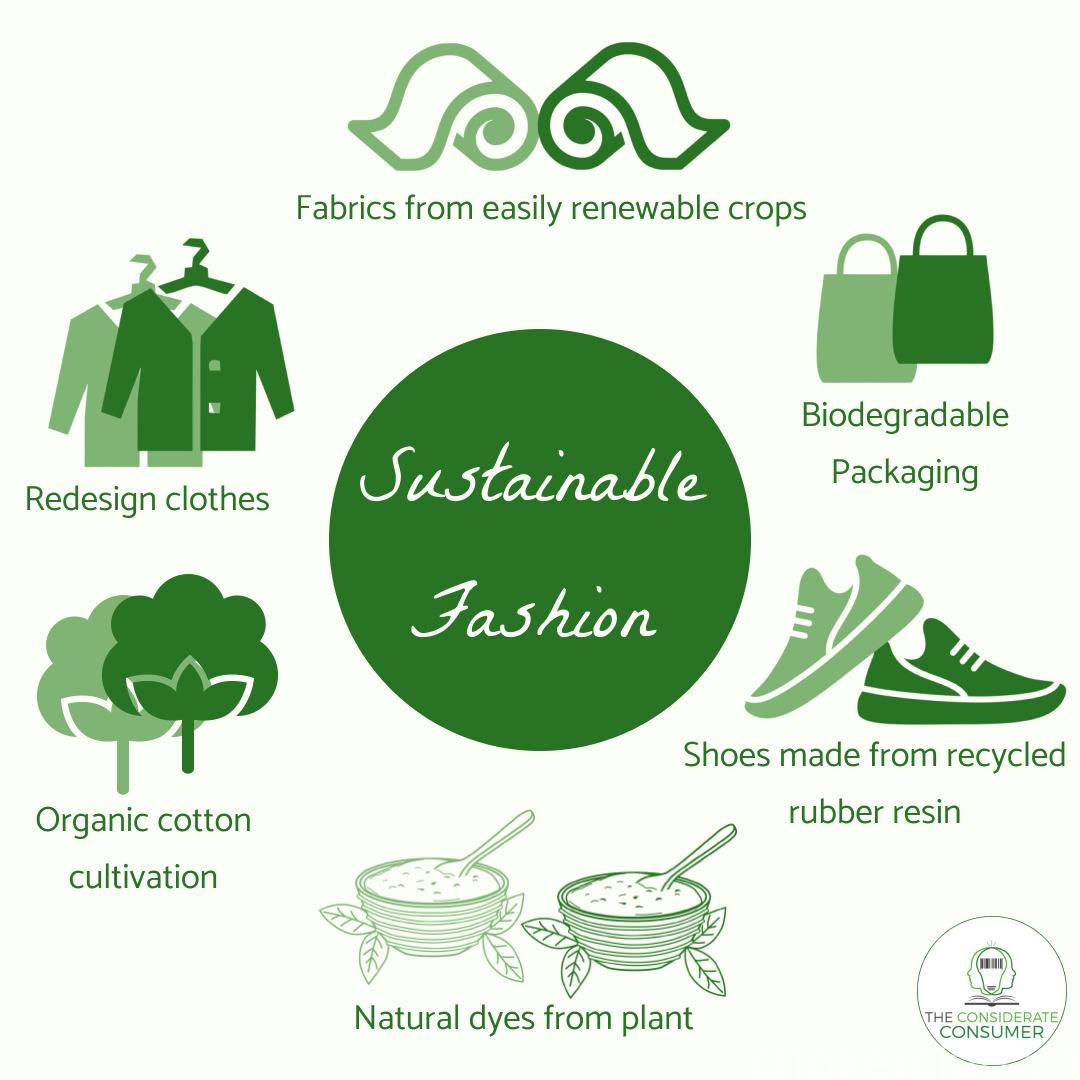
| Key Points: |
|---|
| Sustainable fashion addresses the environmental impact of the fashion industry. |
| It promotes ethical labor practices throughout the supply chain. |
| Empowering consumers to make conscious choices. |
By embracing sustainable fashion, we can mitigate the negative environmental impact caused by traditional fashion practices.
“Sustainable fashion is not just about reducing environmental impact, but also ensuring fair and ethical treatment of workers throughout the supply chain.” – Fashion Industry
Consumer choices play a vital role in driving demand for sustainable fashion and encouraging more brands to adopt sustainable practices.
III. Overview of Common Sustainable Fashion Certifications
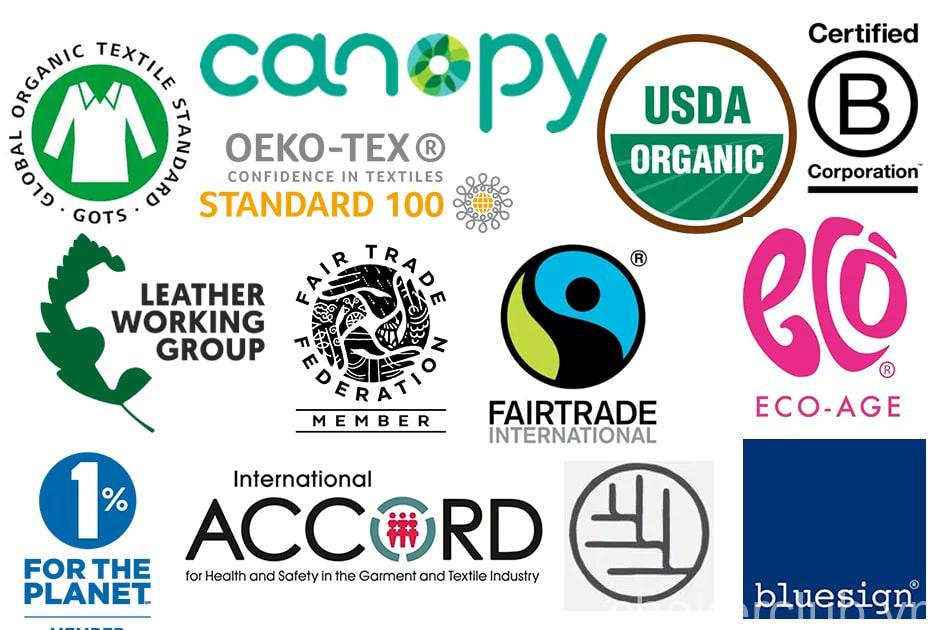
GOTS is one of the most widely recognized certifications for sustainable fashion. It sets strict environmental and social criteria along the entire textile supply chain, from harvesting organic raw materials to manufacturing and labeling.
| Certification Criteria |
|---|
| – Minimum 95% certified organic fibers |
| – Prohibition of harmful chemicals in processing |
| – Proper waste management and water treatment |
| – Fair wages and safe working conditions for workers |
“GOTS certification ensures that every step of the production process meets rigorous standards, ultimately guaranteeing consumers that they are purchasing truly sustainable clothing.”
Gaining GOTS certification requires adherence to strict guidelines that promote both ecological integrity and fair labor practices. By choosing products with this certification, consumers can feel confident about their impact on the environment.
Fair Trade Certified
Introduction | Experience| FAQ | ———–|————|——–| Workers receive a fair wage | Connects consumers with suppliers supporting ethical trade | Fosters transparency through frequently asked questions
“When you choose Fair Trade Certified clothing, you are making a positive impact on the lives of garment workers and supporting an ethical fashion industry.”
By choosing Fair Trade Certified products, consumers contribute to sustainable livelihoods for artisans and producers in developing countries. They can have peace of mind knowing that their purchases support fair wages and working conditions.
B Corp Certification
The B Corp certification goes beyond environmental considerations; it assesses a company’s overall social and environmental performance. B Corps meet rigorous standards of transparency, accountability, and sustainability across all aspects of their business operations.
| Certification Components |
|---|
| Certification Areas |
|---|
| – Governance: Demonstrating commitment to stakeholder interests |
| – Workers: Prioritizing employee well-being and development |
| – Community: Engaging with local communities through sustainable practices |
| – Environment: Implementing eco-friendly measures throughout operations |
“B Corp certification ensures that businesses not only prioritize profit but also consider people and the planet in their decision-making process.”
By supporting companies with B Corp certification, consumers contribute to building a more inclusive and sustainable economy while enjoying high-quality clothing from ethically minded brands.
Social Accountability International (SA8000)
– Child Labor | Forced Labor| Health & Safety Workings | – Discrimination| Discipline, and Grievance
“SA8000 certification guarantees that workers are treated fairly and their rights are respected throughout the fashion supply chain.”
By supporting brands with SA8000 certification, consumers can be confident that they are purchasing products made under fair labor conditions and contributing to improving working standards globally.
| Certification Principles |
|---|
IV. Criteria and Standards for Sustainable Fashion Certifications
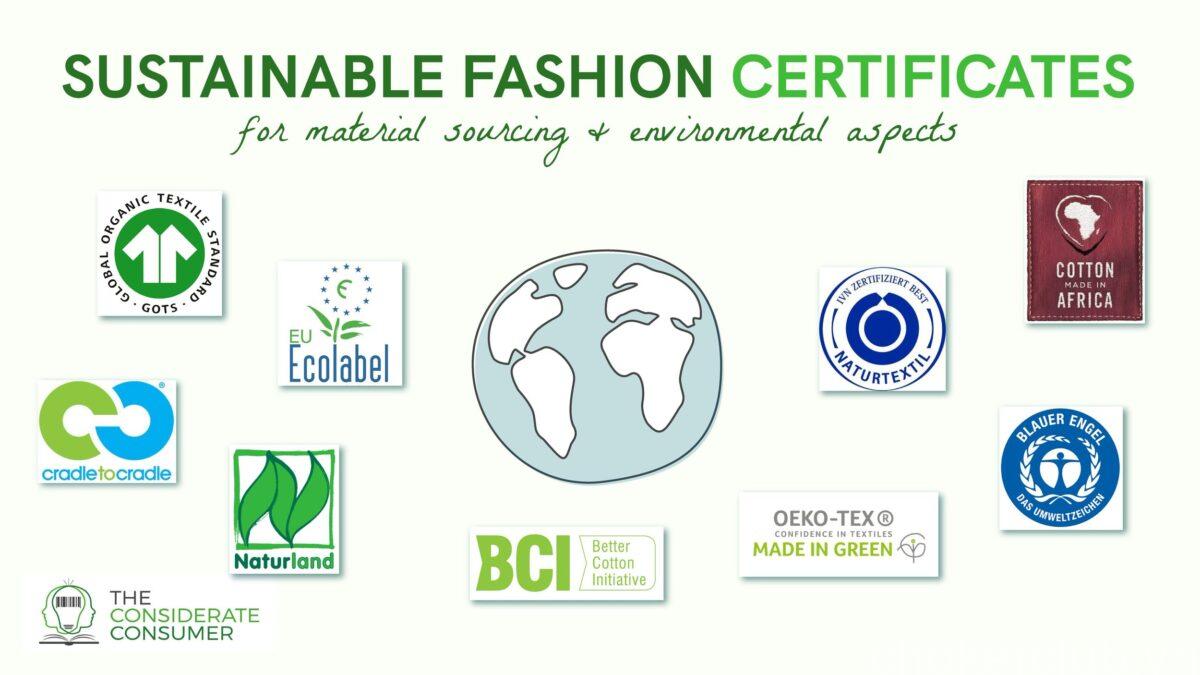
In order to meet these criteria and standards, brands may need to adopt various practices such as implementing sustainable sourcing strategies, reducing waste, using eco-friendly materials, supporting fair trade initiatives, and investing in renewable energy. Sustainable fashion certifications provide a valuable framework for consumers to make more informed choices and support brands that prioritize ethical and eco-friendly practices.
V. Comparing Sustainable Fashion Certifications

When it comes to sustainable fashion certifications, two prominent names that often come up are Global Organic Textile Standard (GOTS) and Fair Trade. GOTS focuses on ensuring that the entire supply chain of a fashion product meets specific organic fiber criteria, ensuring both environmental and social responsibility. On the other hand, Fair Trade certification emphasizes fair wages, safe working conditions, and community development for workers involved in the production process.
To compare these certifications, let’s take a look at their key differences:
| GOTS | Fair Trade |
|---|---|
| Primarily focuses on environmental sustainability through organic fiber requirements. | Emphasizes fair wages, safe working conditions, and community development. |
| Covers the entire supply chain, including processing, manufacturing, and labeling. | Focuses on improving livelihoods and empowering workers in developing countries. |
| Requires compliance with specific environmental criteria and prohibits the use of toxic chemicals. | Ensures that workers receive fair compensation, benefits, and have rights protected. |
“GOTS certification guarantees that the clothes you purchase meet strict organic standards, while Fair Trade ensures that the people involved in making those clothes are treated ethically and fairly.”
VI. Beyond Certification: Embracing a Sustainable Fashion Lifestyle
Embracing a sustainable fashion lifestyle goes beyond relying solely on certifications. It involves adopting a mindset of conscious consumerism and making thoughtful choices every day. Consider investing in timeless, high-quality pieces that are made to last. By selecting versatile and durable items, you can build a wardrobe that withstands trends and reduces the need for frequent purchases.
VII. Conclusion
As we conclude our exploration of sustainable fashion certifications, it is clear that these certifications play a vital role in promoting ethical and eco-friendly practices within the fashion industry. By understanding the importance of sustainable fashion and being aware of the various certifications available, consumers like you can make informed choices that align with your values.
Throughout this article, we have delved into the world of sustainable fashion and examined the criteria, standards, and comparisons of different certifications. We have also highlighted the need to go beyond certification and embrace a holistic sustainable fashion lifestyle.
By incorporating sustainable fashion practices into your everyday life and supporting brands with reputable certifications, you can contribute to a more sustainable future. Let us continue to advocate for change towards a fashion industry that prioritizes not only profit but also the well-being of our planet and the communities involved in the supply chain.
Remember, every time you choose sustainable fashion, you are making a positive impact. Together, we can drive the transformation of the fashion industry, one conscious choice at a time.



